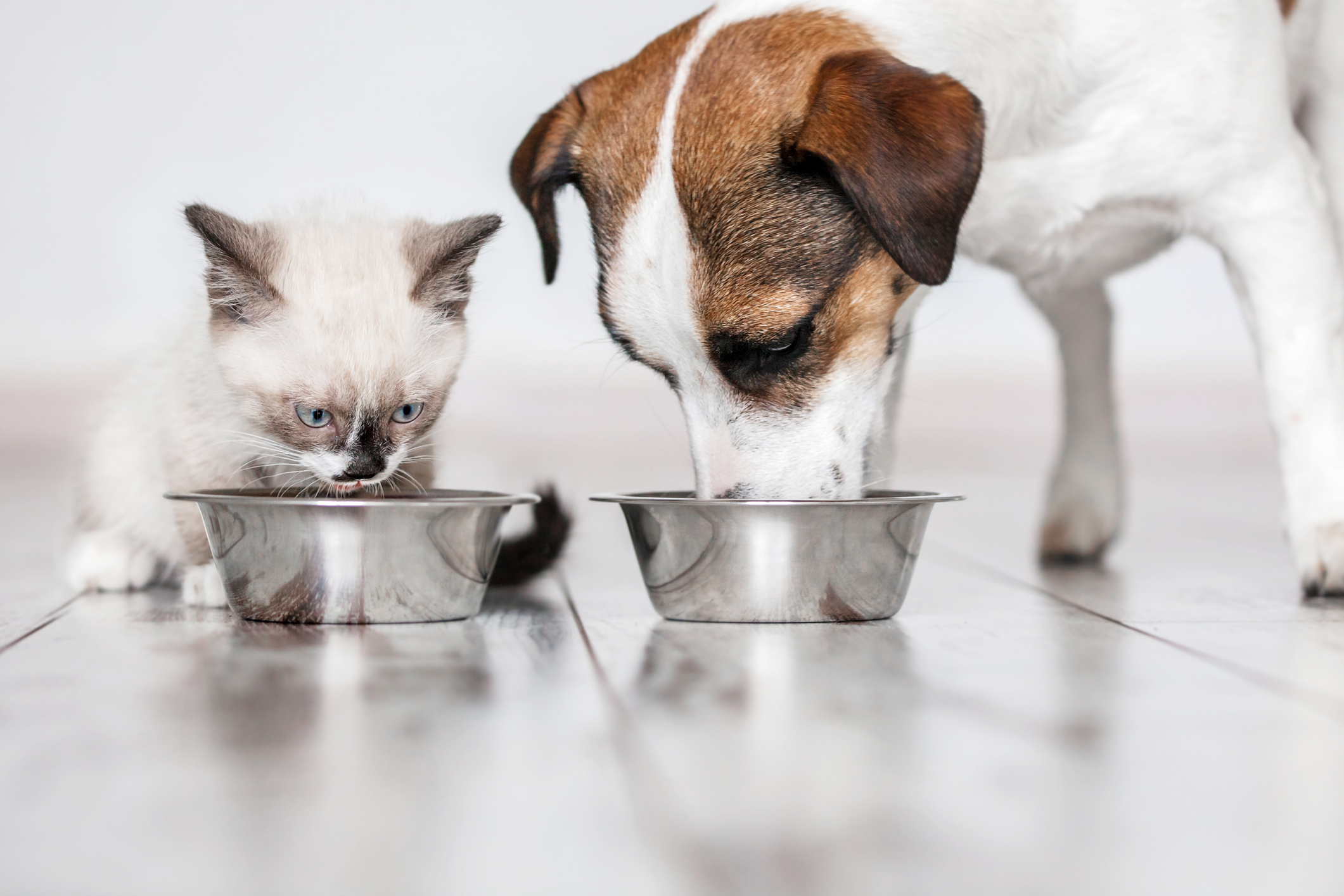
The ingredients in our pets’ food matters. Here in Canada, pet food is less regulated than in other countries This means the quality of the ingredients can vary—a lot. When it comes to proper pet nutrition, there are a few key things for pet parents to keep in mind.
With this quick pet food guide, the team at Glenridge Animal Hospital and Referral Centre will help you determine the best diet for your pet.
Why the Quality of Your Pet’s Food Matters
Feeding your pet a high-quality diet is one of the most important things you can do for her long-term health.
Just as it can with humans, poor nutrition in pets can contribute to all sorts of issues. These include digestive problems, skin conditions, obesity, diabetes, arthritis, and heart disease.
But a well-balanced diet packed with nutrients can help your pet avoid these ailments. Choosing the right pet diet can help your pet:
- Increase energy levels
- Maintain a healthy weight
- Strengthen the immune system
- Promote a shiny, healthy coat
- Support sharp vision, hearing, and smell throughout life
Canadian regulations on pet food labeling and ingredients are somewhat loose, so pet parents must make pet food choices with care.
Understanding the Best Diet for Pets
Choosing the best pet food starts with understanding your pet’s life stage, health, and needs. Puppies and kittens, for example, need high-calorie diets with lots of protein and fatty acids so they can grow.
Adult pets, on the other hand, need balanced nutrition that helps maintain their energy, weight, and coat health.
Senior pets don’t need so many calories—but they do need foods that support their joints.
In Canada, there can be a big difference in quality from brand to brand. Some pet foods include low-quality fillers, by-products, and artificial additives that don’t do much good for your pet. Instead, look for foods with real, named animal proteins (like chicken, beef, or salmon) as the first ingredient. Avoid picking foods with terms like “meat meal” or “animal digest,” which are red flags for low-quality sources.
Proper pet nutrition also means choosing foods with a balanced mix of carbohydrates, fats, vitamins, and minerals. Omega-3 and omega-6 fatty acids support skin and coat health, while taurine is vital for heart and eye function in cats.
An easy way to make sure you’re feeding your pet well is to make sure the food meets AAFCO (Association of American Feed Control Officials) standards.
You can find the AAFCO guide for dogs and cats here.
If you need extra help finding the right pet food, contact your veterinarian. At Glendridge Animal Hospital and Referral Centre, our friendly team is more than happy to learn about your pet’s health and unique needs.
From there, we can recommend food that provides your pet with the best opportunity for a long, healthy life.
Call us today at (905) 688-1996 to schedule an appointment!


